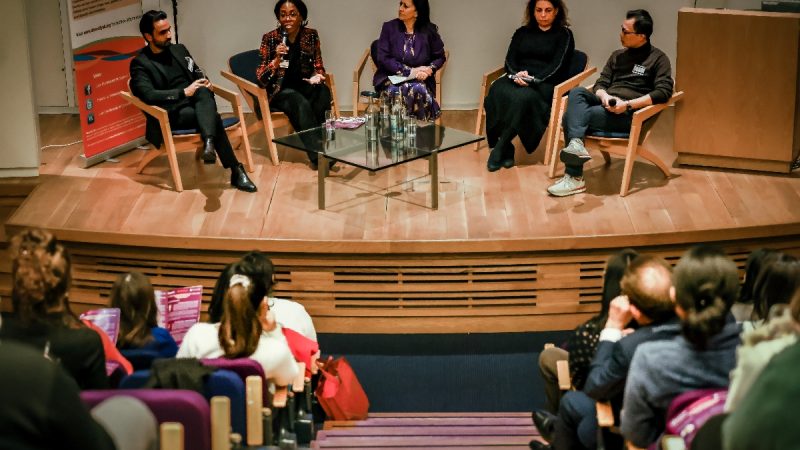‘Barrier Bosses’ hold back gender equality

Men believe that equality between the sexes would be better for the UK economy and themselves, according to a survey of 8,000 people commissioned by the Fawcett Society, to mark its 150th year. However, despite showing a clear desire for equality, the forthcoming ‘Sex Equality – State of the Nation’ report also reveals that there are still significant barriers to progress that need to be overcome.
Fawcett’s biggest ever survey, carried out by Survation, found that 7 out of 10 men believe a more equal society between women and men would be better for the UK economy. Significantly, more than a third (39%) of men surveyed believe it would be better for them personally. Only 7% of men think they would lose out if we had a more equal society.
Interestingly, it appears that men are now the biggest supporters of gender equality. Overall men are more likely to support equality of opportunity for women than women themselves, with 86% of men wanting this for women in their lives, compared to 81% of women wanting it for themselves.
Sam Smethers, Chief Executive said: “We won’t achieve equality without engaging and persuading men. There is now an overwhelming majority who believe it would be better for the economy, for the women in their lives and a significant number who also see it as better for themselves. We have never had a better opportunity to create a more equal society. But despite this stubborn barriers remain.”
The survey identified two major barriers to progress – firstly a small but powerful group of ‘barrier bosses’ responsible for recruitment decisions, and secondly the fact that most people believe that men at the top won’t voluntarily move over for women.
'Barrier Bosses' : Recruitment decision-makers
The poll included 1,422 people who are recruitment decision-makers and the responses from them reveal some cause for concern.
This group, which includes women and men, is less likely to believe in equality of opportunity. Indeed this group is more than twice as likely (16%) as the overall population (7%) to be against equality of opportunity for the sexes and more likely to believe they would personally lose out if women and men were more equal. A quarter of this group believes that a more equal society would not be better for the economy, compared to just 13% UK wide. 14% believe they would lose out if men and women were more equal; that’s more than three and a half times the proportion of those not involved in recruitment (4%).
Sam Smethers continued “A significant minority of managers - the ‘barrier bosses’ - are holding us back. They are the ones with the power over recruitment and their decisions are likely to be informed by their attitudes to equality. There are many progressive employers who are working hard to drive change, but if they are wondering what is holding up progress in their organisation this may explain why.”
“Whether it is conscious or unconscious bias, this is discrimination in action. These are the people responsible for implementing equal opportunities policies yet 16% say they are opposed to the idea.”
“This is bad for individual employers, because they are not recruiting or promoting the best people, and bad for the economy as they are holding women back, failing to use their skills and expertise.”
Fawcett Society calls for quotas
Significantly the survey also found that 6 in 10 people believe that men in top jobs won’t make room for women unless they have to, with 64% of women and over half (55%) of men stating this. Half (49%) of recruitment decision makers also shared this view.
“This is at the heart of it. Despite the fact that men are overwhelmingly pro-equality a majority of people clearly believe that when it comes to the crunch, men won’t move over unless they have to. This is why we need positive action and why quotas would make a difference.”
“The argument has been won. We all want a more equal society but we also see that it won’t happen on its own. We have to make it happen.”
Click to download the ‘Sex Equality – State of the Nation’ report




